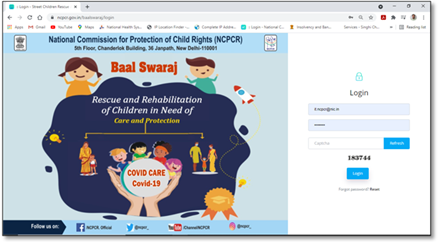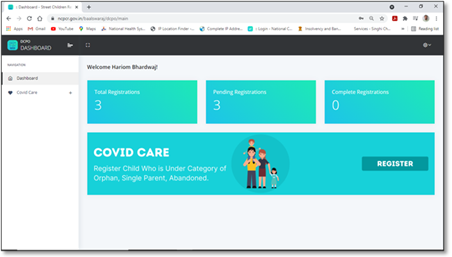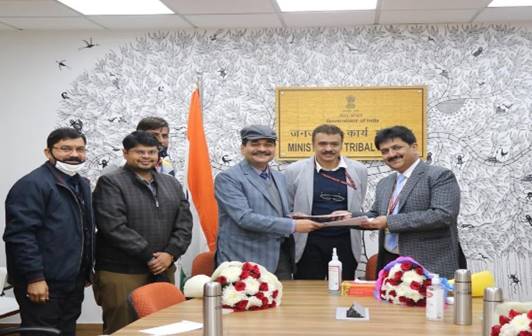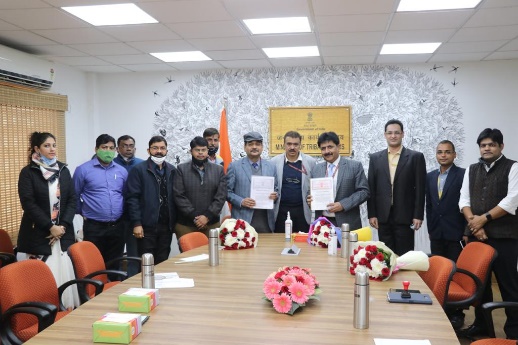NCPCR Asks States/UTS to Upload Data of Children Who Have Lost Both or Either of The Parent To Covid-19 On Online Tracking Portal “Bal Swaraj (Covid-Care)”
The National Commission for Protection of Child Rights (NCPCR), in furtherance to its function as a monitoring authority under section 109 of the Juvenile Justice Act, 2015 and in view of the growing problem related to children affected by COVID-19, has devised an online tracking portal “Bal Swaraj (COVID-Care link)” for child in need of care and protection. This portal of the Commission has been created with a purpose for online tracking and digital real time monitoring mechanism of children who are in need of care and protection. The Commission has extended the use of this portal for tracking children who have lost both its parents or either of the parent during COVID-19 and provided a link under the name of “COVID-Care” for uploading of data of such children by the concerned officer/department on the portal.


The children who have lost family support or are without any ostensible means of subsistence are children in need of care and protection under Section 2(14) of the Juvenile Justice Act, 2015 and all procedures given under the Act for such children must be followed to ensure the well-being and best interest of children.
“Bal Swaraj-COVID-Care”portal is aimed at tracking the children affected by COVID-19 right from the production of children before the Child Welfare Committee (CWC) to the restoration of the children to their parent/guardian/relative and its subsequent follow-up. Through the data filled in the portal by the District officers and State officers for each child, the Commission will be able to get information about whether the child is being able to get his/her entitlements, benefits and monetary gains for which the child is entitled to. It will also come to know whether the child has been produced before the CWC and the orders are being passed for him/her. The Commission can also identify if the State is needing financial assistance in getting more funds for giving benefit under implemented schemes to the children.
The Hon’ble Supreme Court in SMWP No. 4 of 2020 “In Re. Contagion of Covid-19 virus in Children Homes”, vide order dated 28.05.2021 has directed all district officers across theStates/UTs to fill data on the Commission’s portal, related to children who have become orphan before Saturday evening (29.05.2021 evening) on Bal Swaraj portal under the COVID-Care link. The Commission has informed about the direction of the Hon’ble Supreme Court to all States/UTs through letters to Principal Secretaries of Department of Women and Child Development/Social Welfare on 28.05.2021 and letter to Chief Secretaries on 29.05.2021. The username and passwords of each user/district child protection officer and State Government has been shared with all States/UTs as well.
NCPCR is a statutory body and works under the aegis of Ministry of Women and Child Development, Govt. of India.
*****
BY/TFK
(Release ID: 1722677)
Visitor Counter : 3



